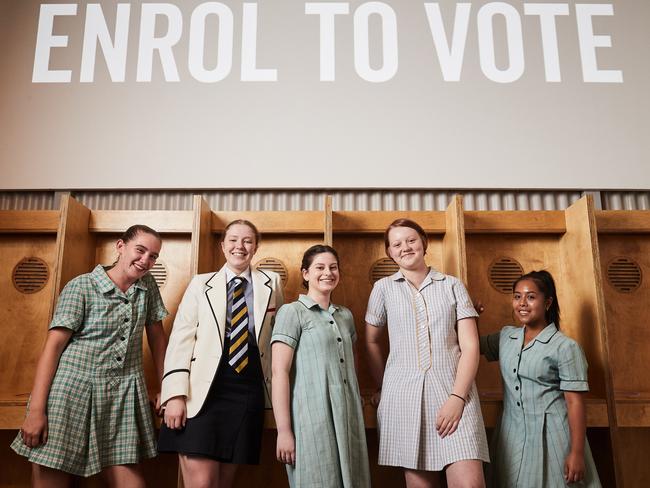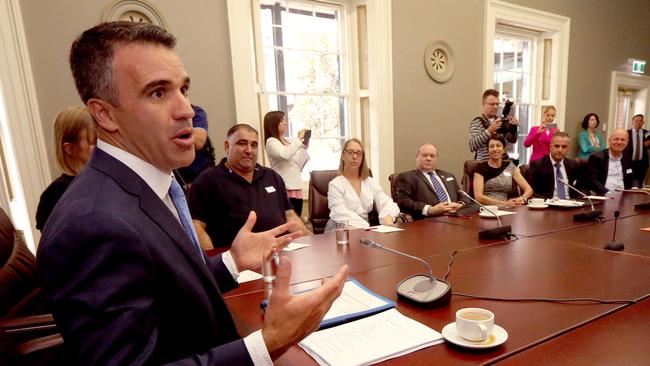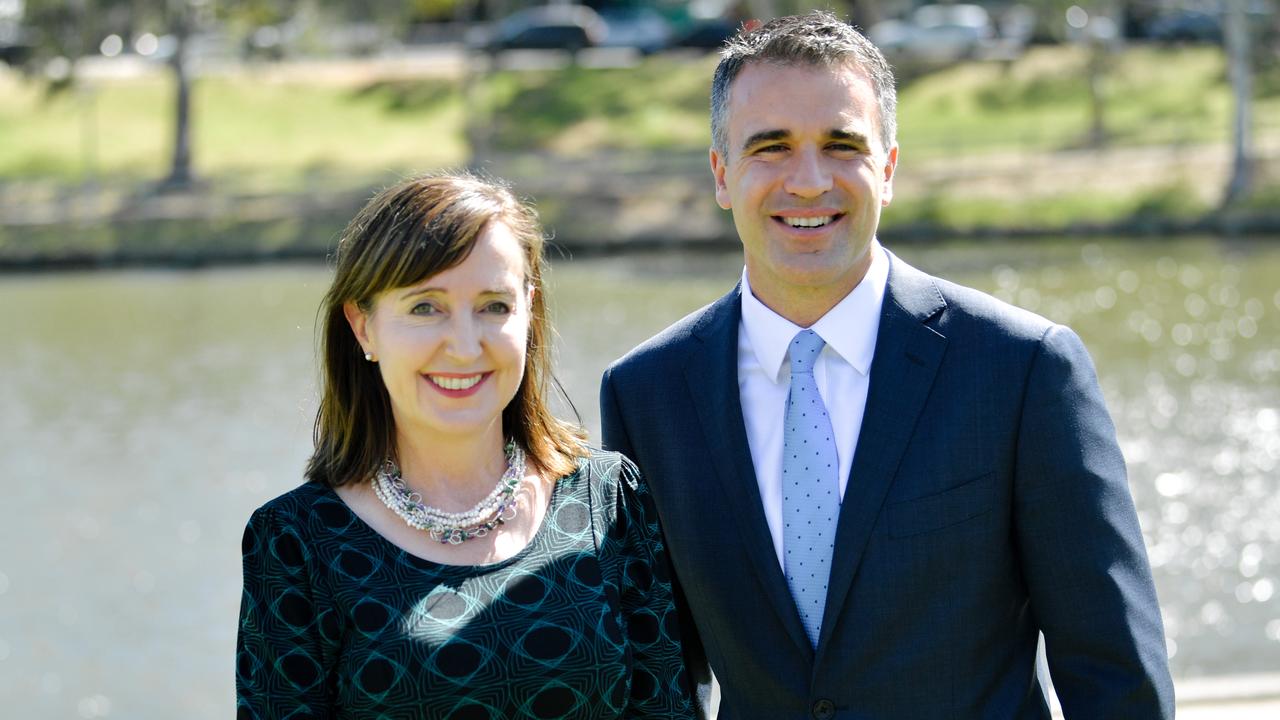Election 2018: They may not like politicians but does that mean our youth don’t like politics?
SIXTEEN year-olds should be able to vote in state elections of the future, South Australia’s peak youth body says. What you think — VOTE NOW
SA 2018
Don't miss out on the headlines from SA 2018. Followed categories will be added to My News.
- Campaign: Keep our young talent in SA
- Building body seeks more housing duty cuts
- Children should get greater say in Family Court matters
- Young South Aussies flee the state
- South Australia’s towns with the most singles
SIXTEEN year-olds should be able to vote in State Elections of the future, the Youth Affairs Council of South Australia says.
Council CEO Anne Bainbridge has told the Sunday Mail next month’s poll should be the last in history where 16 and 17-year-olds cannot vote arguing although young people are less concerned about political parties but are increasingly interested in political issues.
South Australia’s first Commissioner for Children and Young People Helen Connolly told the Sunday Mail an opportunity to vote at 16 and 17 would be embraced by young people.
“There is a big assumption that young people are not interested in politics but what I have found is that it is not the case,” Ms Connolly told the Sunday Mail.
“In fact, they are really open and want the opportunity to be involved in voting.”
“They think that the fact that they don’t vote means they get overlooked as stakeholders.”
The calls come as key issues of next month’s election will be particularly important to South Australia’s young people.
Ms Bainbridge said instead of joining political parties, young people are expressing their political views in alternative ways such as activism, social media, and product boycotts. “Young people are likely to be intensely focused on one or two key causes as opposed to consistently siding with one party,” she said.
“Social media, in particular, has created a new way for young people to be overt about their political opinions.”
Ms Bainbridge said young people talk about the lack of jobs and underemployment, lack of affordable housing, cost of education, environment and renewable energy, cost of living, mental health, limited or lack of public transport in regional areas, the cost of learning to drive and licencing, domestic and family violence and issues related to diversity.
Ms Connolly echoed these sentiments saying that during a listening tour around the state last year young people expressed “real concerns” about a raft of issues including equality, poverty, mental health, bullying, housing affordability and jobs of the future.

“No one has talked to me about politicians or political parties by name,” Ms Connolly said.
“They talk about the issues that are important to them.
“Kids can live with ambiguity a lot more than previous generations so they don’t need this whole notion of party politics or binary choices — they are very much more about the issues.”
SA Council of Social Services chief executive Ross Womersley welcomed the proposal.
“We know there are some major issues with disengagement and in a country that prides itself on an active independent democracy finding ways to encourage young people to better understand and to play a role in politics is a really important quality” Mr Womersley said.
He said young people have serious concerns about what is happening in their communities.
South Australia’s Council of the Ageing Council chief executive Jane Mussared said older people’s views on lowering the voting age had not been canvassed.
But, she said, there was a strong interest in young people from older South Australians.
“There is a very strong interest in having a bright future for young people in South Australia.”
“They want the economy of SA to be strong.”
A number of countries including Brazil, Austria, Scotland, Spain, and have lowered the voting age.
However the jury is still out on how successful it can be.
Flinders University school of social and policy studies senior lecturer Rob Manwaring said the could go it alone with the will of the political parties because Parliaments are elected under an SA electorate ac separate to the Federal legislation.
Dr Manwaring said there can be risks with whether you vote or not at the first opportunity is often a good predictor for your lifetime voting.
“So, some evidence shows that when the voting age is lowered, young people are less likely to vote, and also then over the course of their lifetime,” he said.
“Other research tells us that young people are not disengaged from politics, but rather they ‘do’ politics in other ways than more traditional forms.”
SA Greens leader Mark Parnell said voluntary voting for 16-year-olds was a long held position of his party.
“The decision that are being made today are going to effect the younger generation more than anyone else,” he said.
Premier Jay Weatherill said the idea was worth consideration “but Labor has no plans to take such a policy to this election.”
The South Australian Liberal Party supports the current voting age.
SA Best leader Nick Xenophon said the voting age should remain at 18 but more effort placed on making sure 18-year-olds were ready to vote.
The Australian Electoral Commission statistics showed that in December 2017 87.8 per cent of eligible voters aged between 18 and 24 were enrolled to vote.


